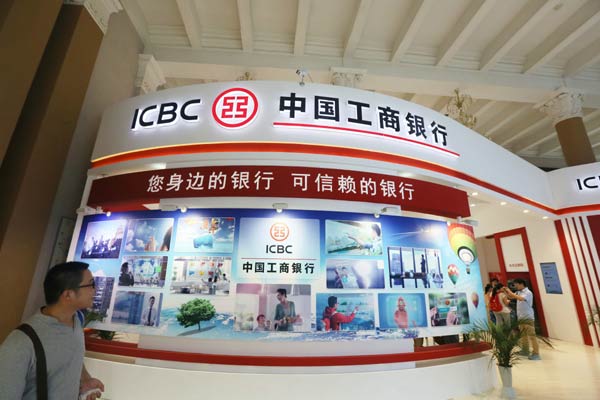
An Industrial and Commercial Bank of China Ltd display at an international financial exposition in Beijing. (Photo/China Daily)
Improved financial requirements will assist companies to invest in better equipment
The Chinese government approved a series of supportive measures on Wednesday for the development of financial leasing, part of the government's efforts to deepen financial reform and ease funding difficulties.
A State Council executive meeting, presided over by Premier Li Keqiang, decided to remove the minimal capital requirement for financial leasing companies when setting up subordinate businesses, streamline administrative procedures for exporting agricultural and medical equipment, and encourage the leasing of equipment in high technology and clean energy sectors, according to a statement released after the meeting.
The move is expected to encourage companies to invest more in better equipment and facilitate the restructuring and upgrading of industries, it said.
Cong Lin, CEO of ICBC Financial Leasing, a specialist leasing operation of the Industrial and Commercial Bank of China, China's largest commercial bank, said the measures will become a blueprint for the industry's development.
ICBC's leasing arm was the first of its type in the country when launched in 2007.
Cong said financial leasing is closely related to the real economy and a support to national strategies, such as the Belt and Road Initiative and its plan to upgrade manufacturing industries by 2025, since these strategies all require large amounts of capital.
"The development of financial leasing will also create more opportunities for international industrial capacity cooperation and the 'going global' of Chinese enterprises," he said.
China's financial leasing market is expected to hit 5 trillion yuan ($780 billion) during the first half of next year to become the world's largest, surpassing that of the United States, according to a report released by the China Financial Leasing Association.
Tian Hui, a research fellow with the Institute for Finance of the State Council's Development Research Center, said financial leasing as an emerging industry has witnessed swift development in recent years, and the industry still boasts great potential for further development.
"A large proportion of financial leasing is in the sector of infrastructure construction, which is in tune with China's investment-driven model of development," Tian said.
For instance, Chinese airlines used to purchase fleets with bank loans, while by the end of 2013, nearly half of commercial airplanes in China were leased, and the proportion is expected to keep growing, according to statistics from the Development Research Center.
The surge in financial leasing activities has been partly fueled by listed Chinese companies tapping the service for cheap credit, Tian said.
Companies in the telecom, agriculture, pharmaceutical, energy and equipment manufacturing sectors are increasingly fond of sale-leaseback, a business model in financial leasing that helps companies obtain financing by renting assets that they sold earlier.
Wednesday's meeting also passed policies to reduce fees collected during the export and import procedures to encourage trade following a slump in exports last month.


















































